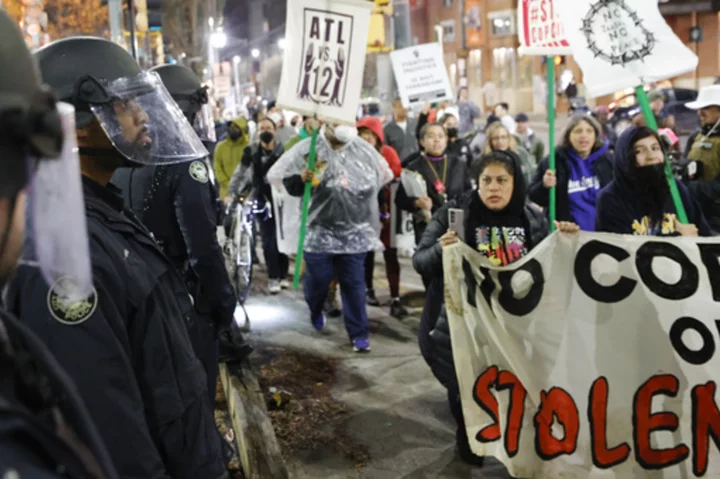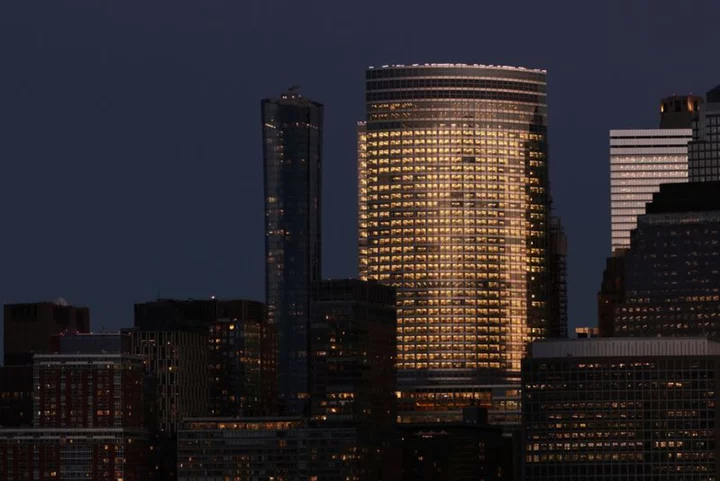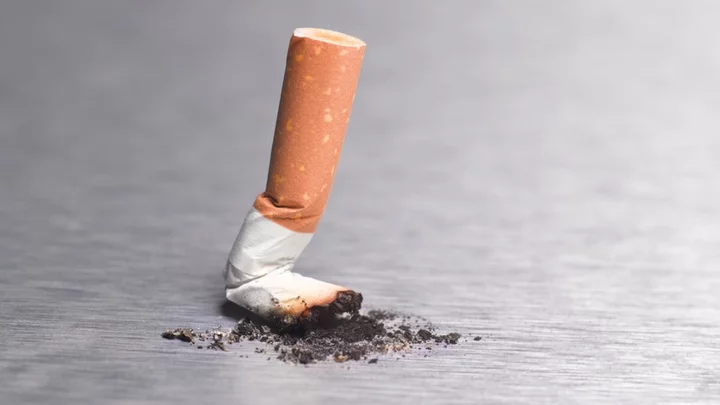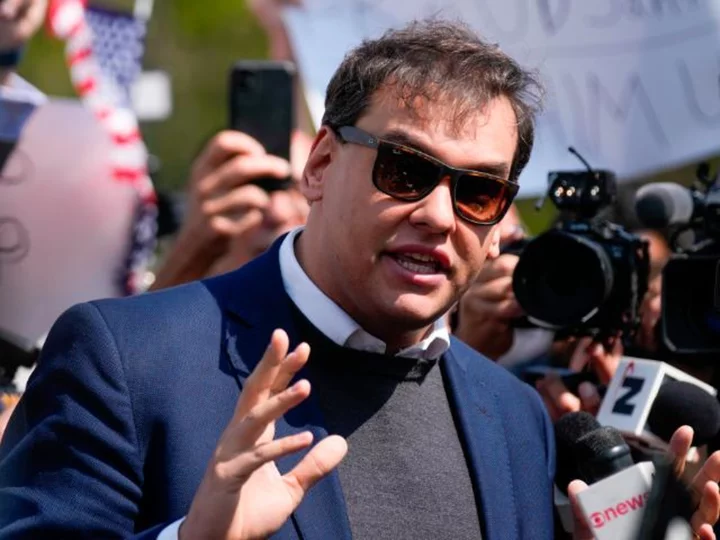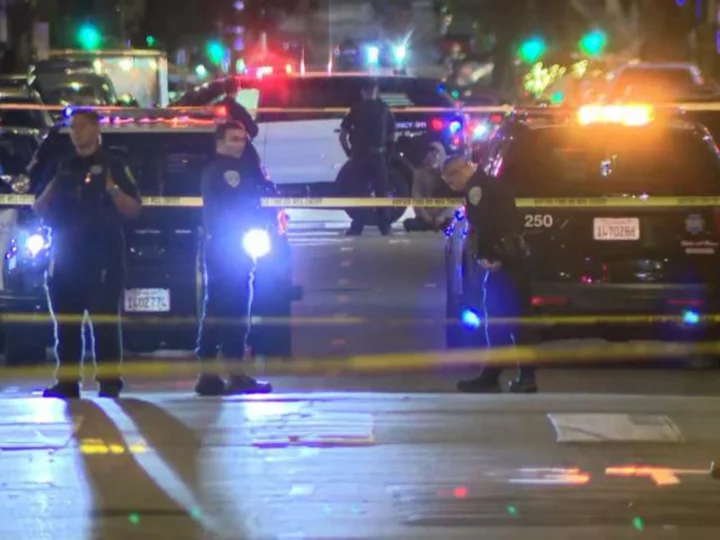ATLANTA (AP) — Georgia state troopers who shot and killed an environmental activist at the site of a planned police and firefighter training center near Atlanta will not be charged, a prosecutor announced Friday, saying he found that their use of deadly force was “objectively reasonable.”
Opponents of the center, who derisively refer to it as “Cop City," had camped out at an 85-acre (34-hectare) tract of forest that is being developed for the massive facility. It is there that Manuel Paez Terán, 26, was killed.
Mountain Judicial Circuit District Attorney George Christian announced his decision not to pursue charges in a news release and released a 31-page report detailing his analysis.
State troopers were part of what authorities described as an “enforcement operation” at the site when they encountered Paez Terán, who was known as Tortuguita. When the activist refused to come out of a tent, the troopers fired a pepperball launcher and Paez Terán responded by firing a handgun four times through the tent, hitting and seriously wounding a trooper, the release says. Six troopers fired back, killing Paez Terán.
Brian Spears, an attorney for the family, expressed “extreme disappointment” in Christian’s report, noting that the prosecutor relied on the findings of the GBI, which was involved in the enforcement operation.
The troopers who fired on Paez Terán were not wearing body cameras, and Paez Terán's family and other activists have expressed skepticism from the start about law enforcement statements about the shooting.
Specifically, they've pointed to the results of an independent autopsy commissioned by the family that concluded the activist was sitting cross-legged with their hands in the air at the time of the shooting. Separately, the DeKalb County Medical Examiner’s Office said gunpowder residue was “not seen” on Paez Terán's hands, though investigators said forensic tests later “revealed the presence of particles characteristic of gunshot primer residue.”
Protesters have also singled out the comment of a responding officer who, seemingly reacting to the radio traffic, had said, “You (expletive) your own officer up.” The activists have said on social media that it supports assertions some made from the beginning that the trooper was shot by friendly fire. Christian's report says the bullet that wounded the trooper came from Paez Terán's gun.
Paez Terán's killing was a galvanizing moment for the “Stop Cop City” movement, with activists across the world holding vigils and painting murals in honor of Tortuguita, who friends said was dedicated to helping others and protecting the environment. Three days after the killing, a group of masked protesters torched a police car and attacked the entrance of a downtown skyscraper that houses the Atlanta Police Foundation, the nonprofit that is building the training center.
Several other acts of vandalism have since taken place, including the storming of the construction site in March, an event that led to dozens being charged with domestic terrorism. In late August, Georgia Republican Attorney General Chris Carr secured a racketeering indictment against 61 people connected to the movement.
In the report released Friday, Christian named the state troopers who fired their guns at Paez Terán: Mark Lamb, Jonathan Salcedo, Bryland Myers, Ronaldo Kegel, Royce Zah and Jerry Parrish. He identified Parrish as the trooper who was shot and wounded by Paez Terán.
The report says officers from multiple law enforcement agencies were involved in an operation to remove people who were trespassing on the property, which is owned by the city of Atlanta, and to remove campsites. Activists at the site had “disrupted and intimidated” contractors working at the site and “had committed crimes," it says.
The GBI briefed all of the officers participating before they fanned out into the wooded area, telling them that people at the site had previously been known to have guns and an officer had been confronted by a person with a rifle and pistol on one occasion. Officers were also warned about explosive devices and traps allegedly found on the property and were told that people had previously thrown rocks and fireworks at officers, the report says.
Also according to the report, when the first two troopers arrived at Paez Terán's tent, the tent door flap was open about a foot (30 centimeters) and troopers saw movement inside. A trooper identified himself as police and told Paez Terán to exit the tent. After a minute or two, it became clear the activist wasn't going to come out, and Paez Terán zipped up the tent flap.
One of the troopers radioed to ask that a pepper ball launcher be brought in, and while waiting on that continued to tell Paez Terán to come out. As more troopers arrived, Paez Terán partially unzipped the tent and told the troopers he wouldn't come out and wanted them to leave before closing the tent again. That's when one of the troopers warned Paez Terán he would use a chemical agent and began firing pepper balls into the tent.
Within seconds, Paez Terán began firing at the troopers from inside the tent, the report says. Troopers returned fire. They reported hearing a loud boom and seeing white smoke coming from the front area of the tent, causing them to believe Paez Terán had deployed an explosive device.
Troopers involved said they clearly identified themselves as police and told Paez Terán to come out multiple times. They said they told him he was trespassing and was under arrest and warned him before using the pepper balls. Other officers confirmed hearing troopers identify themselves and issue warnings.
Christian, citing Carr’s ongoing racketeering case, said no other records will be released for now. Spears objected to that. He said there is “no possible reasonable justification” to not release all records given that Christian's investigation is complete.

